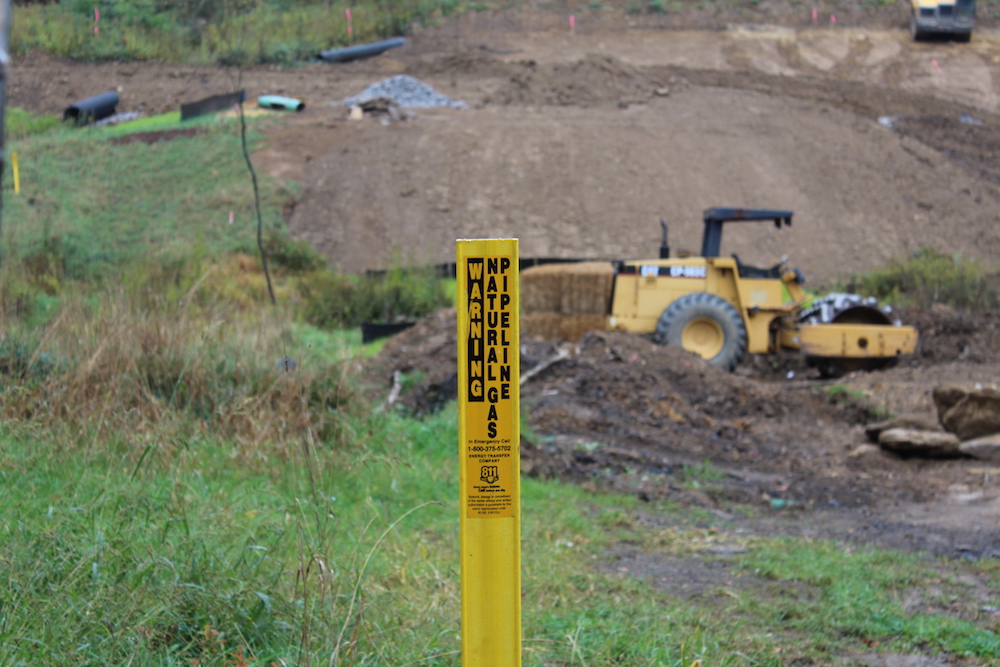This is a guest post by ClimateDenierRoundup.
Although pipelines have been facing a number of setbacks recently, pro-pipeline groups aren’t giving up. One of those is Grow America’s Infrastructure Now (GAIN), which came to our attention because it’s recently begun sponsoring the Washington Examiner’s daily energy newsletter.
GAIN’s website simply describes the group as supporting strengthening infrastructure development and only mentions pipelines as one aspect of its focus, which also includes bridges, roads, etc. But the group’s blog, Twitter, and coverage in the media are pretty exclusively dedicated to pro-pipeline messaging. Hmmm, almost like it isn’t an all-around infrastructure group, and perhaps may have some ulterior motive …
Which, of course, it does. GAIN was formerly known as the Midwest Alliance for Infrastructure Now (MAIN), which Steve Horn at DeSmog reported was acting as a front group for DCI. You may remember DCI as the PR firm tied to the GOP: It’s got experience in creating front groups on behalf of Big Tobacco, it’s known for its role spearheading the modern Tea Party movement, and it’s also worked to discredit Dakota Access pipeline protesters.
And although it seems to have changed names, GAIN is still up to the same tricks.
Back in July of 2017, Eric Hananoki at Media Matters wrote a piece exposing how CNN Commentator James “Spider” Marks was writing op-eds attacking pipeline protestors without disclosing he was on the advisory board of TigerSwan, a company that was hired to provide security for the Dakota Access pipeline. This led to numerous papers updating Marks’ pieces to reflect this. PennLive actually stated “his work will not appear on the website again” due to this failure to disclose.
What’s Marks been up to lately? Well as it turns out, in the past year, he’s been writing more pro-pipeline op-eds, in the Pittsburgh Post-Gazette, the Washington Times, and RealClearPolitics. All, of course, without mentioning his position as a Strategic Advisor at GAIN.
GAIN’s latest project is a “fact-checker” tool, designed, as the website says, to push back against the so-called “coordinated disinformation campaigns” that have been leveraged against pipelines like Dakota Access and Keystone XL.
However, GAIN seems unaware of how fact-checkers generally work: The website often just repeats a claim without offering any further evidence and then deems it true.
A recent fact-check from earlier this week has the appearance of offering more evidence, but that disappears once you dig in. The check gives a “False” rating to a claim that a pipeline would negatively impact property values, using evidence in a 2016 study by the Interstate Natural Gas Association of America (INGAA), a trade organization that advocates for the natural gas pipeline industry, which concluded that proximity to a natural gas pipeline has no impact on property value.
Beyond the inherent bias of having a natural gas pipeline advocacy group do this study, some have also pointed out that the study compared houses next to the pipeline with houses in the same development, a few hundred feet from the pipeline, rather than with the broader market. This means the research may not be accurately portraying the influence of pipelines on property value. After all, if the pipeline depresses value for the whole neighborhood, this methodology wouldn’t notice.
Personal and local accounts suggest that’s exactly what’s happening. One property owner in the path of that Kinder Morgan pipeline — a self-described conservative who supports pipelines — says he’s been trying to sell his property and interest has dropped since the project was announced.
Meaning that unless you own the pipeline or get paid by the people who do, buying into the industry‘s propaganda will be all pain, no GAIN.
Main image: A natural gas pipeline warning at a Pennsylvania pipeline construction site. Credit: Ashley Braun, DeSmog
Subscribe to our newsletter
Stay up to date with DeSmog news and alerts






